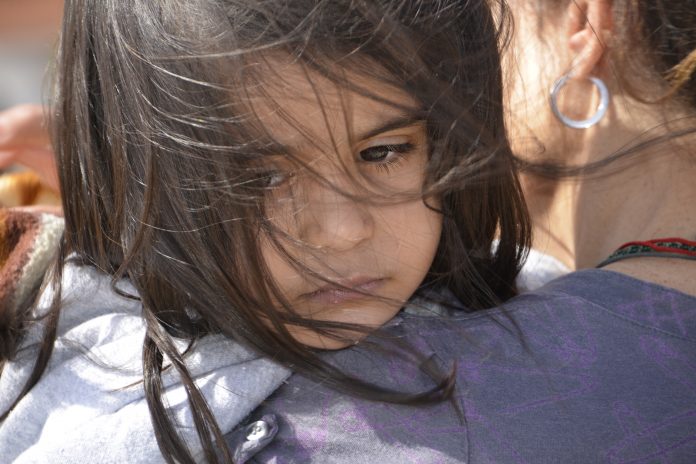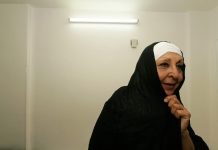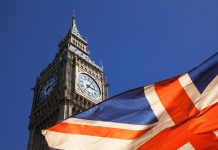In this article, Valerie Peay, Director for the International Observatory of Human Rights (IOHR), describes the profit-making scheme used by the UK government on children who apply for citizenship
Many of us have had those few moments of panic just before a holiday when you rummage in a drawer for your passport and can’t quite remember where you put it after the last trip.
Finally, your fingers find that comforting embossed emblem, then you see the golden lettering that confirms you are an entitled citizen of the European Union, of the United Kingdom of Great Britain and Northern Ireland.
But what if that panic is real?
Not only can you not find your passport you don’t have one. Perhaps yours is a lesser being with restrictions and or a temporary right to remain.
The rights and privileges that we take for granted are embodied in that document. It holds the key to our prosperity, our happiness, our ability to explore and to become a contributing member of society.
We may not think about it, but the right to leave the country and come back, the right to ask the state for support and sometimes safety when we need it, even the right to ask for financial help – like a student loan – are all things which are dependent on our citizenship.
So imagine being able to qualify for all of those life-changing privileges, only to discover they are unattainable because of the cost. Many people will already have paid expensive fees to a lawyer to find out that even filling out the form places this badge of identity beyond their reach.
This is the reality for thousands of families in the United Kingdom today who have every chance of meeting citizenship criteria, if only they had the money to apply.
The reason this situation exists is because the government has designed it this way. Years of what has now become known as the ‘hostile environment’ policy has seen the cost of citizenship applications soar – particularly for children.
the ‘hostile environment’ policy has seen the cost of citizenship applications soar
Since 2014 the price of child citizenship applications has risen from £670 to the £1,012 which children under-18 must pay today; just to apply. It’s a non-refundable fee for an application which has no guarantee of success and selection criteria which seems to vary based on the political whim.
The cost of a citizenship application in the UK is five times the European average while in Denmark, Luxembourg, Belgium and France, it is free to apply.
The cost of child citizenship applications in the four EU countries with the largest GDP outside of the UK (that is, Italy, Spain, France, Germany) is a fraction of the cost of citizenship in the UK.
This demonstrates that, unlike the UK, the four largest economies in the EU have chosen a policy that does not rely on profit made from citizenship applications by often vulnerable people.
The cost of processing a child citizenship application in the UK is only £372. With the scale of government investment on digital transformation programmes, it is incredible that this is the cost of managing and processing a child’s record. However, this means that the UK government makes £640 profit on every child that applies, raising an estimated £24million a year in profit.
The Home Office response is that these profits are aggregated and ploughed back into other projects but surely giving a child the right to belong is the most important project?
To give a child an identity so they can to become a responsible member of society is surely part of the obligations that the UK underpins with the legislation on the rights of a child.
In larger families, the burden is worse.
At the International Observatory of Human Rights, we have heard from families who have had to choose to apply for citizenship on behalf of one child over the other – a heart-breaking decision born of the fact that, for many families, paying more than £1,000 per application per child is too big a financial burden.
families who have had to choose to apply for citizenship on behalf of one child over the other
These fees can also have severe negative impacts on the quality of life of families to try in desperation to pay them. Parents overworking in multiple jobs, debt and skipping meals to save for the costs are all consequences of high citizenship application fees.
Many of the children facing these fees were born in the UK. They are just the same as all the other children in their class but because of this financial obstacle, they may never have rights like their peers.
Their access to education is restricted and even though they were born in this country, they might find themselves having to pay international student fees for university, with no support in the form of a student loan.
All of this is without mention of the most basic of a citizen’s rights, the right to vote.
Without citizenship, children are denied the right to participate in the democratic process resulting in the next generation and so will remain under-represented and voiceless.
These fees have a psychological impact, too. Children who have never considered themselves as anything except the British have to come to terms with the fact that they are different from their friends. They are being denied the right to claim their identity.
It is for all of these reasons that the International Observatory of Human Rights has launched their #ChildNotProfit campaign, which is calling for an end to child citizenship application fees.
We hope that our politicians will learn the lessons of the Windrush scandal and turn away from the hostile environment which has unfairly put the most vulnerable in our society at a further disadvantage.
We urge MPs to support an amendment to the Immigration Bill so we can all do the right thing to save this next generation from the exclusion for profit by removing these astronomical fees for children.
We are calling on the British public to sign the petition which is available on the parliamentary petition site and the observatoryihr.org website and to write to their MPs expressing their opposition to this policy.
It cannot be right that the government needlessly uses the cruel obstruction of cold hard cash to deprive youngsters of rights which are so fundamental to achieving their full potential.
Using those children’s future, and the desperation of their families, as a means to make a profit is a shameful act. It must end.
Valerie Peay
Director
International Observatory of Human Rights
Editor's Recommended Articles
-
Must Read >> The housing crisis: UK refugees and asylum seekers















